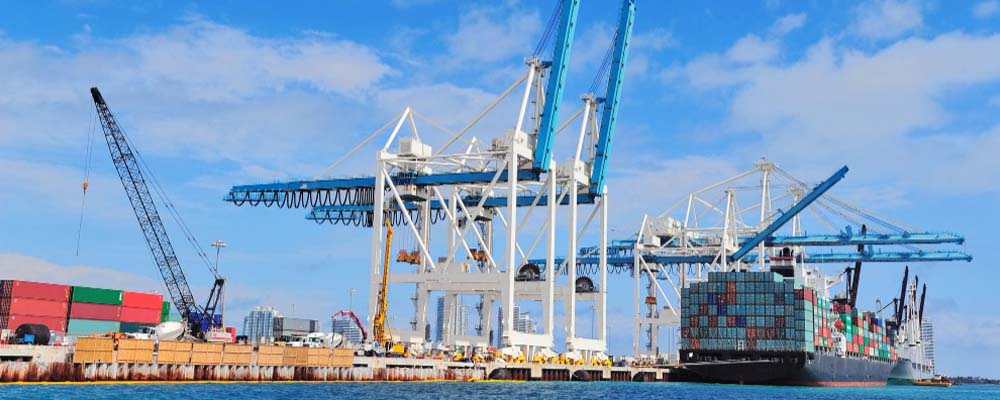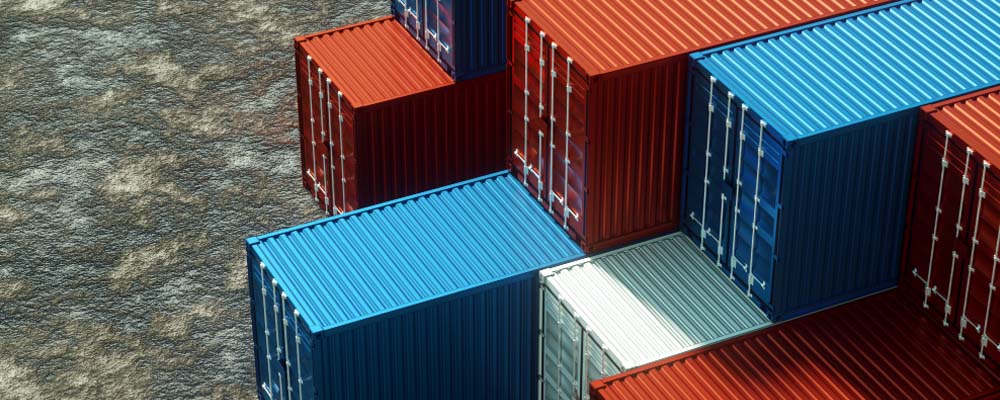
Portugal, with its strategic location on the Atlantic coast, has long been a significant player in international maritime trade. The country serves as a gateway between Europe, Africa, and the Americas, offering key advantages for global logistics operations. The Port of Lisbon is a key gateway for goods in Portugal, valued for its strategic location, strong infrastructure, and advanced logistics capabilities. This post explores the Port of Lisbon’s advantages for freight forwarders, logistics providers, importers, exporters, and other industry stakeholders.
Introduction to the Port of Lisbon
Located on the Tagus River estuary, the Port of Lisbon is one of Portugal’s largest and busiest ports, serving as a crucial link in the global supply chain. With a history dating back to the Age of Exploration, it now operates as a modern, highly developed maritime hub, supporting sectors like freight forwarding, logistics, customs brokerage, and e-commerce.
Lisbon’s port is managed by the Port of Lisbon Authority (APL), which oversees its operations, infrastructure development, and strategic planning. Recent investments in modernization and sustainability have made the Port of Lisbon a growing and attractive gateway for international trade.
Geographical and Strategic Importance
The Port of Lisbon’s strategic location on Europe’s western edge offers ideal connections to European, African, and American markets via the Tagus River estuary and the Atlantic. This positioning reduces transit times and costs for freight forwarders and logistics companies, while proximity to Spain and other European nations enables efficient overland connections, enhancing its role as a key logistics hub.
Infrastructure and Facilities
The Port of Lisbon is equipped with a robust infrastructure capable of handling a wide variety of cargo. Here’s an overview of some of its key facilities:
- Container Terminals: The port’s modern container terminals, including the high-capacity Lisbon Container Terminal (TCL), feature advanced equipment for efficient loading, unloading, and storage, handling millions of tons of cargo annually.
- Bulk Cargo Terminals: The Port of Lisbon includes terminals for bulk cargo like grain, cement, and raw materials, essential for manufacturers relying on it for imports and exports.
- Cruise Terminals: The port’s dedicated cruise terminal supports Portugal’s tourism industry, boosts the local economy, and generates revenue for port maintenance and development.
- Warehousing and Storage: The port offers extensive warehousing, including cold storage and facilities for perishable goods, benefiting exporters of temperature-sensitive products.
- Intermodal Connections: Integrated with road and rail networks, the Port of Lisbon enables quick cargo transport across Portugal and neighboring countries, facilitating multimodal solutions for logistics providers.
The Port of Lisbon’s robust infrastructure meets modern logistics standards, providing the reliability and speed essential for importers, exporters, and e-commerce businesses.
Cargo Handling Capabilities
The Port of Lisbon handles a diverse range of cargo types, making it a versatile option for businesses across different industries:

- Containerized Cargo: The port’s container terminals efficiently handle both full and empty containers, ensuring minimal delays.
- Dry Bulk: Bulk cargo terminals handle large volumes of commodities like grains, minerals, and cement, vital for manufacturing and construction.
- Liquid Bulk: The port has specialized facilities for liquid bulk cargo, including fuel, chemicals, and edible oils, serving manufacturers’ needs.
- Ro-Ro (Roll-On/Roll-Off) Cargo: The Port of Lisbon’s Ro-Ro facilities accommodate vehicles and wheeled cargo, attracting automotive logistics providers.
These capabilities make the port ideal for sectors ranging from e-commerce to manufacturing, meeting needs for quick container handling and reliable bulk transport.
Customs and Security Measures
For any port engaged in international trade, customs and security are paramount. The Port of Lisbon has implemented advanced customs procedures and security protocols to streamline processes and protect cargo:
- Customs Clearance: The Port of Lisbon operates a highly efficient customs system, utilizing digital platforms to expedite the clearance process. Importers and exporters benefit from reduced waiting times and simplified documentation, making it easier to comply with international trade regulations.
- Security Standards: The port maintains security to international standards, including ISPS Code compliance, ensuring robust protection and peace of mind for all logistics partners.
- Inspection Facilities: Modern inspection facilities at the port ensure compliance with health, safety, and environmental regulations, benefiting businesses handling regulated goods like food, pharmaceuticals, and chemicals.
Environmental and Sustainability Initiatives
Sustainability has become a core priority for ports worldwide, and the Port of Lisbon is no exception. The port has committed to reducing its carbon footprint and adopting eco-friendly practices, aligning with global standards in environmental sustainability. Some key initiatives include:
- Green Port Program: The Port of Lisbon’s Green Port Program aims to minimize the environmental impact of its activities. This includes measures to reduce emissions, manage waste responsibly, and promote renewable energy use.
- Water Management: Located on the Tagus River, the port actively manages water quality, enforces strict waste treatment, and uses water-efficient technologies to reduce consumption.
- Sustainable Transport Options: The port promotes sustainable transport, including rail and electric vehicles, to cut carbon emissions. This makes it easier for logistics providers to incorporate green practices into their supply chains.
The Port of Lisbon’s environmental initiatives make it an appealing choice for companies focused on sustainability.
Advantages for Various Logistics Stakeholders
The Port of Lisbon provides unique advantages for various players in the logistics industry:
- Freight Forwarding Companies: The port’s efficient handling of containerized and bulk cargo allows freight forwarders to manage diverse shipments seamlessly.
- Importers and Exporters: The strategic location of the port reduces transit times, while modern customs procedures ensure smoother, faster clearance.
- Customs Brokers: Streamlined customs and inspections at the Port of Lisbon offer customs brokers a quick, compliant environment for handling international shipments.
- Manufacturers and Producers: The port’s bulk handling benefits manufacturers relying on steady raw material imports.
- E-commerce Businesses: The Port of Lisbon provides e-commerce businesses with fast, reliable logistics services for efficient, timely shipments.
- Logistics Vendors: Vendors benefit from the port’s warehousing and intermodal connections, enabling end-to-end solutions for clients.
These stakeholders can leverage the Port of Lisbon to streamline operations and boost supply chain efficiency.
 Conclusion
Conclusion
The Port of Lisbon stands as a central hub in the European and Atlantic shipping network, offering numerous benefits for freight forwarding companies, logistics providers, importers, exporters, and others involved in international trade. Its strategic location, modern infrastructure, diverse cargo handling capabilities, and commitment to environmental sustainability make it an ideal gateway for companies seeking efficient and reliable logistics solutions.
For businesses across industries, leveraging the Port of Lisbon can provide a competitive advantage by reducing transit times, streamlining customs processes, and supporting sustainable logistics practices.




 Conclusion
Conclusion




